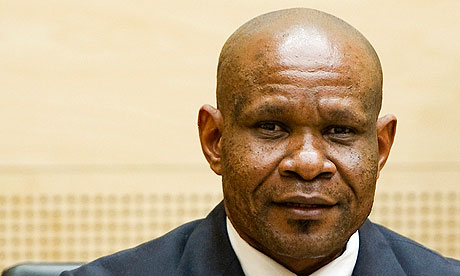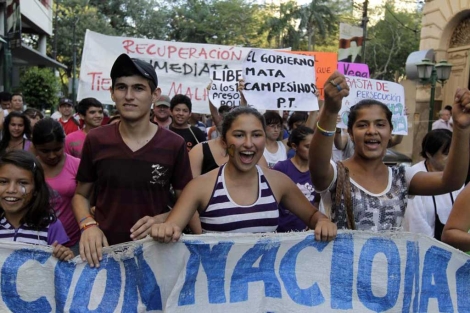What Order?
Syrian Revolution Digest – December 19, 2012
While world leaders keep foraging for a policy, Syria’s increasing refugees are foraging for the basics of life: food, shelter and security. Where does the buck stop in our contemporary world? Where do we go to plead our case with a reasonable expectation of a just hearing?
Today’s Death Toll:161 (including 7 children and 3 women)
67 in Damascus and suburbs including 6 field executed in Kafar Sousseh, 50 in Aleppo including 40 in a car explosion in Marjeh neighborhood, 19 in Daraa, 8 in Hama, 8 in Deir Ezzor, 5 in Homs, 3 in Idlib and 1 in Suweida.
Points of Random Shelling: 246
Clashes:104
Rebels downed a plane in Albal’as mountains in Hama, launched an assault against the Koris Military Airport in Aleppo, took control of the checkpoint at Alsoyouf Square in Deir Ezzor City, and liberated the checkpoint at Mjaimar in Suweida City (LCC).
News
U.N. Seeks New Aid for Syria Crisis and Predicts 1 Million Refugees by Mid-2013
New Syria Rebel Chief Describes Clandestine Life
Rebels seize towns in central Syria
Syria Interior Minister Wounded by Bomb Last Week Syria’s interior minister suffered a serious back injury in the bombing of his ministry last week and was brought to Beirut on Wednesday for treatment, Lebanese security officials said.
Syrians Pack Up to Flee Damascus as Battle for Capital Escalates
Abbas Urges UN to Help Palestinian Refugees in Syria
As Last Member of NBC Team Escapes Syria, More Details on Hostage Drama Emerge
U.N. warns Lebanese against meddling in Syria conflict
Lebanon’s Shiites and Sunnis Battle in Syria, but Not at Home
Drogheda man killed fighting regime in Syria
Online pirate army fights for downfall of Assad
Amman warns: Jihadists are hijacking Syrian revolution, may target Israel, Jordan next
Jordanians saw the first signs two months ago when their intelligence service caught a cell of 11 Jordanian Salafists who had assembled in Syria and were planning, under the aegis of Al-Qaida, to attack shopping centers and Western embassies in Jordan.
Special Reports
FREDERIC HOF: Syria’s Time Is Running Out
The country tears itself further apart with each passing day. This is the moment to do something about it… In these circumstances, time is the enemy of humanity. The longer the regime has to break the Syrian people into combustible categories of sect and ethnicity, the greater the chance that Syria will become a stateless, chaotic and expanding black hole in a region where stability is a challenge in the best of circumstances. Lebanese, Turks and Jordanians already feel Syria’s agony — and share in it. Time, in this case, is not the great healer. Time is the deadliest of enemies… Time is the enemy. Time is of the essence. Time, for Syria and its neighbors, is running out.
Aleppo’s History Under Threat
Aleppo has been designated a World Heritage site since 1986, recognized for its ancient market, citadel and mosques, and the United Nations in recent months has called several times for its protection while emphasizing the tremendous toll the war has taken on civilians.
SYRIA: IDPs brace for winter in rebel-controlled camps
Cold and afraid, many here say they want desperately to leave Syria’s nearly two-year conflict behind and cross into Turkey. But for the moment, their northern neighbour has refused to accept them, citing overcrowding. Fourteen Turkish camps, hosting 141,000 people, are already well over capacity, with thousands of people sleeping in communal tents or in neighbouring villages for lack of space.
The humanitarian crisis in Syria, everyone is responsible
Lack of cooperation on all sides has left the doors open to the most extremist financiers from the Arab Gulf countries to force their own agendas on the brigades they are financing, agendas that have nothing to do with Syria’s cause of freedom and dignity.
Syria Deeply
Conversations: A Frustrated Assad Supporter
The last thought that doesn’t let me sleep at night is the decision by the government to move the vital enterprises, facilities and factories to the “safe” provinces. What do they mean by safe provinces, are they the coastal area? And what a coincidence, because after Damascus airport wasn’t available for several days last week, the governor of Tartous announced that the agricultural airport in Tartous will start operating as a commercial airport. Are we moving towards separation? This is my worst nightmare…no Syrian can afford this.
Has the Arab Spring Lived Up to Expectations?
My contribution to a just released briefing by Woodrow Wilson Center.
For those who expected a fast and smooth transition to liberal democratic norms, the Arab Spring has certainly failed to deliver. But for those who simply wanted to push their countries into taking one important and necessary step in the right direction by breaking the prevailing political stalemate in their societies, then, the Arab Spring has definitely lived up to expectations.
The fear barrier is now broken; the anciens régimes are gone; and pent-up political forces, with their good, their bad, and their downright ugly, have been released. The Islamists might have the upper hand at this stage on account of their stronger organizational capabilities, but the more secular elements are not giving up and have, in fact, made it clear that they, too, have strong grassroots connections and support—and not only among minority communities but within the larger Arab Sunni community as well.
No longer can any of the sides dismiss the other as irrelevant. The choices confronting all are now stark and clear: accommodation, civil war, or civil war eventually ending in accommodation. A return to the autocratic past with one side dominating the other and imposing its ways is not feasible. Each side of the divide has enough regional and international backers to ensure the near impossibility of such an outcome. The sooner the representatives of the different political forces realize this, the better for all. For only when accommodation is reached can democracy finally begin to take root in our region.
Video Highlights
Leaked video from the Damascene suburb of Daraya shows wounded loyalist militias receiving treatment in the field, before being forced to withdraw with their tanks when MiGs showed up to bomb rebel positions http://youtu.be/uuIWEk6UT_4
Another leaked video documents the use of missile launchers by pro-Assad militias http://youtu.be/4xsjog7ZZP8
Rebels take a stand in Yarmouk Camp in Damascus City http://youtu.be/8Ly_9baT4u4 In Ain Terma, pro-Assad militias pound the community with tanks http://youtu.be/EgR2CePNc1g Residents of nearbyMleihah evacuate their town http://youtu.be/rMtNuJvJOfc As MiGs continue their raids on the region of Eastern Ghoutah: Hamouriyeh http://youtu.be/8lhjVXWhiNw Kafar Batna http://youtu.be/VyTitCfcSAY


